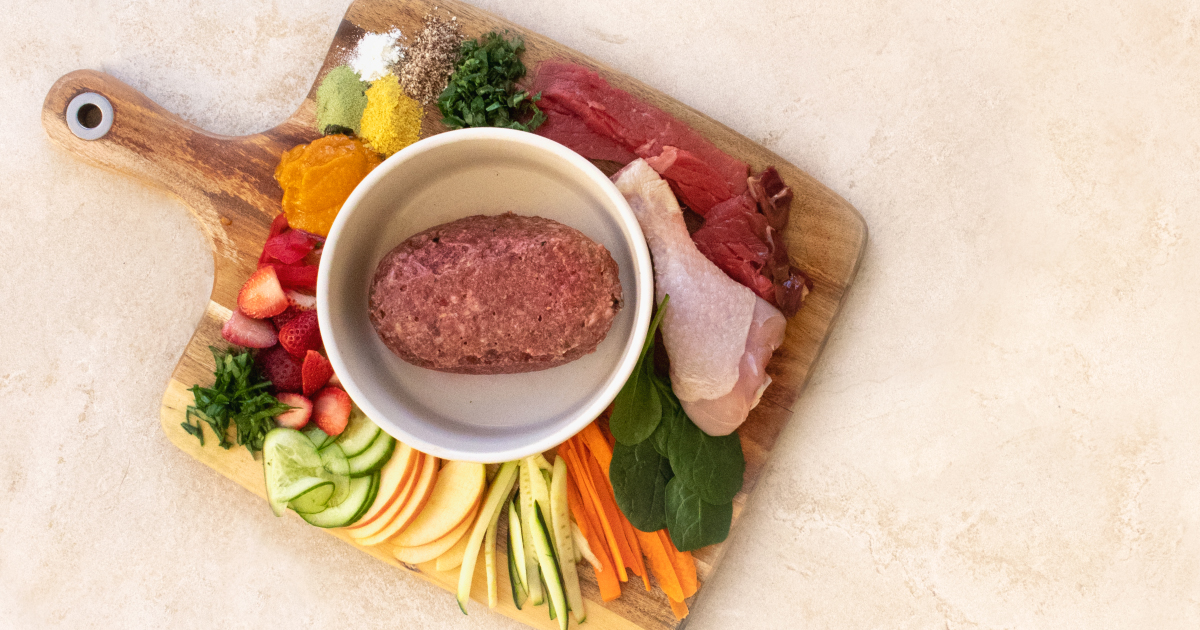Benefits of Raw Food Diet for Dogs
A raw food diet for dogs, also known as a “BARF” diet (Biologically Appropriate Raw Food), has gained popularity among pet owners in recent years. This article aims to provide a comprehensive understanding of the benefits associated with feeding dogs a raw food diet.
Improved Digestive Health
A raw food diet can have a positive impact on a dog’s digestive system. By feeding dogs raw, unprocessed foods, their bodies are better able to break down and absorb nutrients. This can lead to improved digestion, reduced instances of gastrointestinal issues, and firmer stools.
Enhanced Dental Health
Raw food diets often include raw bones, which can help keep a dog’s teeth clean and healthy. Chewing on bones can help remove plaque and tartar buildup, reducing the risk of dental diseases such as gingivitis and periodontal disease. Additionally, the act of chewing on bones can provide mental stimulation for dogs.
Increased Energy and Vitality
Feeding dogs a raw food diet can provide them with the necessary nutrients to thrive. Raw foods are rich in essential vitamins, minerals, and enzymes that can support overall health and boost energy levels. Many pet owners report that their dogs on a raw food diet display increased vitality and improved coat condition.
Healthy Weight Management
A raw food diet can help dogs maintain a healthy weight. Raw foods are generally lower in carbohydrates and higher in protein compared to processed dog foods. This can promote lean muscle mass and reduce the risk of obesity. Additionally, raw food diets often lack additives and fillers, which can contribute to weight gain in dogs.
Improved Immune Function
The nutrients present in raw foods can support a dog’s immune system, helping them fight off diseases and infections more effectively. Raw diets are typically rich in antioxidants, which can boost immune function and reduce inflammation. A strong immune system can contribute to a dog’s overall well-being and longevity.
Reduced Allergies and Sensitivities
Some dogs may have allergies or sensitivities to certain ingredients commonly found in commercial dog foods. By feeding them a raw food diet, pet owners have more control over the ingredients their dogs consume. This can help identify and eliminate potential allergens, leading to a reduction in allergy symptoms and sensitivities.

A raw food diet can offer numerous benefits for dogs, including improved digestive health, enhanced dental health, increased energy and vitality, healthy weight management, improved immune function, and reduced allergies and sensitivities. If considering a raw food diet for your dog, it is important to consult with a veterinarian to ensure a balanced and appropriate diet is provided.
Frequently Asked Questions – Benefits of Raw Food Diet for Dogs
1. What is a raw food diet for dogs?
A raw food diet for dogs is a feeding approach that consists of uncooked, unprocessed ingredients such as raw meat, bones, fruits, and vegetables.
2. What are the benefits of a raw food diet for dogs?
Some benefits of a raw food diet for dogs include improved digestion, healthier skin and coat, increased energy levels, stronger immune system, and better dental health.
3. Can all dogs be fed a raw food diet?
While most dogs can thrive on a raw food diet, it is essential to consult with a veterinarian before making any significant dietary changes for your dog, especially if they have any underlying health conditions.
4. Are there any risks associated with a raw food diet for dogs?
Raw food diets can carry a risk of bacterial contamination, such as salmonella or E. coli. It is crucial to handle and store raw food properly to minimize these risks.
5. How do I transition my dog to a raw food diet?
The transition to a raw food diet should be done gradually over oover1-2 weeks. Start by introducing small amounts of raw food mixed with your dog’s current diet, gradually increasing the proportion of raw food over time.
6. Should I include supplements in my dog’s raw food diet?
Consulting with a veterinarian is essential to determine if your dog requires any specific supplements on a raw food diet. In general, a well-balanced raw food diet should provide most of the necessary nutrients.
7. Can a raw food diet help with my dog’s allergies?
Some dogs with allergies may experience relief on a raw food diet, as it eliminates common allergens found in commercial dog foods. However, each dog is unique, and it is best to consult with a veterinarian for personalized advice.
8. Is a raw food diet suitable for puppies?
A raw food diet can be suitable for puppies, but it is crucial to ensure they receive the right balance of nutrients for their growth and development. Consult with a veterinarian to create an appropriate raw food diet plan for your puppy.
9. Can a raw food diet help with my dog’s weight management?
A properly balanced raw food diet can contribute to weight management in dogs. It allows for better control over ingredients and portion sizes, which can help maintain a healthy weight.
10. How do I ensure my dog’s raw food diet is nutritionally balanced?
To ensure a nutritionally balanced raw food diet, it is recommended to include a variety of proteins, organs, fruits, vegetables, and supplements if necessary. Consulting with a veterinarian or a canine nutritionist can help create a balanced meal plan for your dog.




